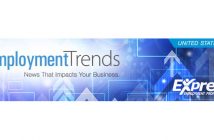The term superannuation sounds complicated, but it’s essentially an organizational pension program. These programs are created by companies to help employees prepare for retirement. You might have also heard of them simply called a pension plan. Funds are added into a superannuation account with the intention of growing them until retirement. These accounts are open to a few different tax benefits that help employees prepare for retirement.
Every year, tax changes reveal different implications for pension accounts. The Federal Budget released in May of this year proposes many changes that might affect pension plan holders in the upcoming year and beyond. This guide takes a more in-depth look into superannuation and everything you need to know about saving for retirement. To learn more about the upcoming changes proposed for superannuation in 2018 and 2019, keep reading.
Changes to Fees
The good news is that many of these proposed changes for the upcoming year actually will reduce fees for account holders. Mainly, there is now a cap on admin and investment fees for low balance accounts. A low balance account is defined as one with under $6000 in funds. This cap will be at 3%, and it’s intended to prevent these balances from being lowered significantly by fees.
Many superannuation account holders who are just beginning to build funds will see their overall fees reduced because of this cap. There is also a proposed ban on exit fees. An exit fee is a cost associated with withdrawing funds prior to retirement, and it can be hefty for accounts of all sizes. Under the suggested Federal Budget, there will be a ban on all of these exit fees to protect employees.
Auto-Consolidation
One issue in the past was the best way to assist accounts without any contributions for over a year. Now, under the proposed plan, these accounts that haven’t been accessed in 13 months with a low balance under $6000 will be classified as inactive. These accounts will then be transferred to the ATO who will attempt to reunite the account with the member’s active account.
The goal here is to consolidate revenue for account holders. The most likely workers to be affected by these new changes are those who work seasonably or have an irregular work schedule. If you want to keep your balance as it is while withholding contributions, talk to your account provider for options to prevent consolidation.
Insurance
Insurance coverage is changing for younger members. While in the past it was the default option for those under 25 and those with inactive accounts, it will now be opt-in only. This is a step towards helping make insurance more available for all workers, including new members to the workforce and irregular workers. Changes to these insurance requirements will begin to take effect in July of 2019.
Working Retirees
Within this Federal Budget proposition is a Pension Work Bonus increase to $300 per fortnight. This is an additional $50, and it allows older workers to earn more without reducing their Age Pension payments. Another benefit of this change is extending coverage to those who are self-employed.
Working retirees now have more flexibility about their own work schedule and retirement age. Their budgeting skills are more helpful now than ever. They are also now able to make voluntary contributions within their first year of retirement. If they’re in the age range of 65 and 74 and they have a balance below $300,000, they’re able to make voluntary contributions to their superannuation account even if they no longer meet the work test requirements.
It’s important to understand not only how your superannuation account functions, but how to make the most of your contributions. Planning for retirement is essential at all stages of life, so make sure you’re aware of how these changes will affect you in the upcoming year.






